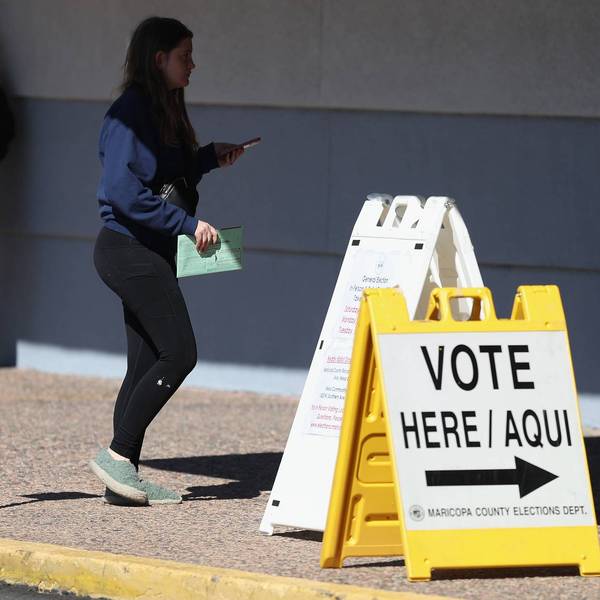'Hillary wins Hispanics; Obama wins blacks.'' Increasingly pundits suggest this voting pattern reflects not these candidates, but more permanent divisions. Hispanics and blacks are rivals, we're told, reluctant to vote for one another.
This statement, which threatens to become conventional wisdom, simply isn't true. Instead of reporting on a division, it threatens to create one that isn't there.
The reality is that blacks and Hispanics may have come over on different boats, but they are in the same boat now. The housing foreclosures stemming from the subprime crisis hit them the hardest. Blacks and Hispanics were targeted for subprime loans. They are the biggest victims of rapacious mortgage brokers who peddled loans with hidden prepayment fees or rapidly rising interest rates.
Blacks and Hispanics compete for jobs, particularly among low-skilled workers. But that means they have a shared concern for raising the minimum wage, for guaranteeing paid sick leaves, for enforcing fair labor standards, and for occupational health and safety laws. Employers who exploit undocumented workers or trample the rights of workers trying to organize are a shared threat. Now as the U.S. economy slows, blacks and browns, the last hired, will be the first fired.
Blacks and Hispanics share the same desire for ending the savage inequality of American schools. They strongly support new commitments to high quality education. And just as Latinos push to learn English, I always urge blacks to learn Spanish. America will benefit when we become multilingual in a global marketplace.
Black and brown should be an alliance, not a division. Together, we represent the majority in America's largest cities. We have shared interests, shared agendas and shared neighborhoods. That can lead to tensions, as gangs war over turf. But more unites us than divides us. In fact, there are more black South Americans than there are black North Americans. The slave ships stopped in South America first.
When we come together, we can win. The Rev. Martin Luther King and Cesar Chavez worked together and marched together on the war on poverty. In Chicago, Harold Washington was elected mayor with the help of Latino voters. In Los Angeles, Antonio Villaraigosa lost his first race for mayor because the black community voted for someone whose family had long ties to the community. Villaraigosa worked hard to develop relationships and won on his second try, with significant African-American support. They stood with me in 1988. They voted in large numbers for Barack Obama when he ran for the Senate.
In these presidential primaries, Hillary and Bill Clinton are well known in the Latino community; Barack Obama is a relative stranger outside of Illinois. They largely share the same political platform. So it isn't surprising that Latinos have voted for the candidate they knew rather than the one they are just learning about. Or that Obama's support in the Latino community has risen as he's gained more exposure in successive primaries.
So don't spread the lie that blacks and browns can't come together or won't support one another. We have just begun to forge the coalitions and alliances, to develop the leaders and the agenda that together will make America better.
--Jesse Jackson
(c) Copyright 2008 Digital Chicago, Inc.



